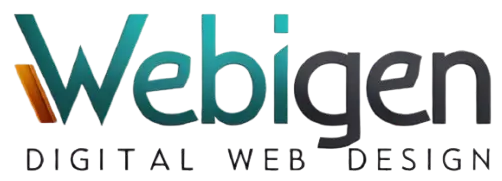Introduction
When planning a new website, one of the first questions businesses face is: Do I need a simple one-page website, or should I go for a multi-page site?
Both options have their strengths. Single-page websites offer simplicity and speed, while multi-page websites provide depth and scalability. Choosing the right one depends on your goals, audience, and budget.
In this guide, we’ll explore the differences, pros and cons, and how to decide which website type is best for your business in 2025.
What is a Single-Page Website?
A single-page website is exactly what it sounds like — all of your content is displayed on one long page, usually broken into sections (About, Services, Contact, etc.) with smooth scrolling navigation.
Key Features of Single-Page Websites:
- Simple navigation (scroll or anchor links).
- Clean, minimal layout.
- Ideal for smaller businesses, freelancers, and startups.
Advantages of Single-Page Websites
- Lower cost: Quicker to design and launch.
- Mobile-friendly: Works seamlessly on phones and tablets.
- Focused messaging: Visitors see everything in one place, without clicking around.
- Great for speed: Loads faster because there are fewer pages.
Limitations of Single-Page Websites
- SEO restrictions: Limited keywords since all content sits on one URL.
- Scalability issues: Hard to expand if your business grows.
- Analytics limits: Difficult to track which sections perform best.
What is a Multi-Page Website?
A multi-page website spreads content across multiple dedicated pages — e.g., Home, Services, About, Blog, Contact. Each page has its own URL, structure, and focus.
Key Features of Multi-Page Websites:
- Separate pages for different topics/services.
- Flexible structure for adding new content.
- Works well with SEO and digital marketing.
Advantages of Multi-Page Websites
- SEO-friendly: Each page can target different keywords (e.g., “Website Design UK,” “E-commerce Packages”).
- Scalable: Easy to add new services, blog posts, or resources.
- Professional credibility: Feels more established, especially for bigger businesses.
- Detailed content: Space for in-depth explanations.
Limitations of Multi-Page Websites
- Higher cost: More design and development time.
- Complex navigation: Visitors may need to click more to find information.
- Longer launch time: Requires more planning and content.
Single-Page vs Multi-Page – Head-to-Head Comparison
| Feature | Single-Page Website | Multi-Page Website |
|---|---|---|
| Cost | Lower (£95–£295 range) | Higher (£495–£1995+) |
| SEO | Limited (one main keyword set) | Strong (target multiple keywords) |
| User Experience | Simple & fast | More detailed & structured |
| Best For | Freelancers, startups, consultants | Small–medium businesses, e-commerce, agencies |
| Scalability | Difficult to expand | Easy to add new pages & features |
Which One is Right for Your Business?
- Choose a Single-Page Website if:
- You’re a freelancer, consultant, or small startup.
- You want something professional but affordable.
- You need a quick launch without ongoing complexity.
- Choose a Multi-Page Website if:
- You want to rank in Google for multiple services/products.
- You’re planning long-term growth.
- You need sections like blog, case studies, FAQs, or detailed service pages.
Final Thoughts
Both single-page and multi-page websites can be powerful tools — the key is aligning them with your business goals.
👉 At Webigen, we specialise in both. Whether you need a sleek one-page site starting at just £95, or a scalable multi-page website for your growing business, our team will help you choose the right option.
📌 Explore our Website Packages to see what works best for you.
FAQs
Q1: Is a single-page website good for SEO?
It’s fine for very small sites, but multi-page websites are much stronger for SEO.
Q2: Which loads faster, single-page or multi-page websites?
Single-page sites usually load faster, but performance depends on optimization.
Q3: Can I upgrade a single-page website to a multi-page later?
Yes, but it requires a redesign. If you plan to expand soon, start with multi-page.
